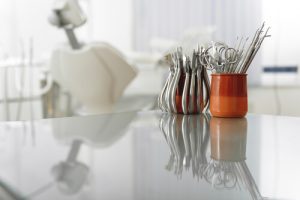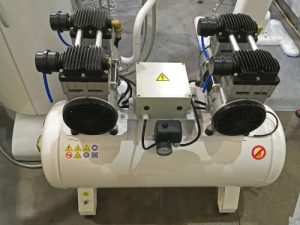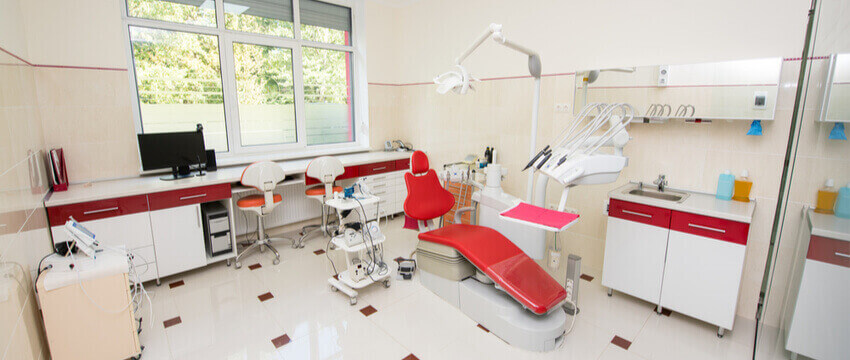In any dental setting, the last thing a dentist and a patient would want is to acquire an infection during and after any dental procedure. Sanitation, safety, and comfort have always been part of what a dentist would want his patients to experience in his practice. It is then very important for us to be aware of what dentists do to prevent contamination of their workplace. Here are some good pieces of advice from dentists on how to prevent infection and find out ways they avoid the risk of infection inside the clinic.
How to prevent infection in the dental office?
Infection prevention and control procedures are standard precautionary measures that are used in any health care setting to prevent or avoid the spread of disease. Dentists are all aware that they have to do their part in these safety procedures. In fact, the Centers for Disease Control and Prevention has developed special recommendations for use in dental offices. All of us should be assured that our dentists care about our safety, and they work hard to avoid risk of infection. How to prevent infection? Here are some of the dental practices they perform on a daily basis to ensure your safety and well-being.
Cleaning and disinfection of surfaces
 Before a patient enters the examining room, dentists make sure that all surfaces, such as the dental chair, dental light, drawer handles, and countertops, have been cleaned and decontaminated. Some dental offices even use a protective cover to wrap equipment when not in use, just to make sure that they avoid the risk of infection and contamination.
Before a patient enters the examining room, dentists make sure that all surfaces, such as the dental chair, dental light, drawer handles, and countertops, have been cleaned and decontaminated. Some dental offices even use a protective cover to wrap equipment when not in use, just to make sure that they avoid the risk of infection and contamination.
Sterilisation
Dental clinics and offices should have a steriliser that efficiently sterilizes and sanitizes all non-disposable tools and instruments. This practice can ensure that no contamination and spread of infection can be passed from one patient to another.
Disposal of waste
Although this part of cleaning and disinfection is not part of your dental procedure, rest assured that professional dentists follow all safety protocols. These are accepted and recommended by relevant dental safety authorities for the decontamination, disinfection, reprocessing of reusable instruments, and disposal of clinical waste. Single-use dental tools and disposable instruments should never be reused on another patient.
Maintenance and cleaning of equipment
 It is the responsibility of the dentist to maintain and clean the dental equipment that he uses in his dental clinic. Machines like the dental chair, compressor (like Cattani compressors), and autoclaves should be well-maintained in order to ensure the safety of use. For instance, dentists can avoid the risk of infection when they clean their dental compressors. Dental compressors are one of the most important pieces of equipment in a dental practice, yet they are the ones that are easily neglected. Compressor brands like Cattani would want dental professionals to pay extra attention to maintaining this machine because, without it, most of your dental instruments that use compressed air will not work. If your dental compressor is damaged, your handpieces, dental chair, spittoon valve, and suction will not work, and almost all the usual things you use in a dental procedure will be affected. Make sure you drain your compressor regularly and request for the services of a licensed dental technician or repairman for your regular compressor maintenance and cleaning. We suggest getting the services of recommended technicians when maintaining a Cattani compressor to ensure their optimum performance and efficiency.
It is the responsibility of the dentist to maintain and clean the dental equipment that he uses in his dental clinic. Machines like the dental chair, compressor (like Cattani compressors), and autoclaves should be well-maintained in order to ensure the safety of use. For instance, dentists can avoid the risk of infection when they clean their dental compressors. Dental compressors are one of the most important pieces of equipment in a dental practice, yet they are the ones that are easily neglected. Compressor brands like Cattani would want dental professionals to pay extra attention to maintaining this machine because, without it, most of your dental instruments that use compressed air will not work. If your dental compressor is damaged, your handpieces, dental chair, spittoon valve, and suction will not work, and almost all the usual things you use in a dental procedure will be affected. Make sure you drain your compressor regularly and request for the services of a licensed dental technician or repairman for your regular compressor maintenance and cleaning. We suggest getting the services of recommended technicians when maintaining a Cattani compressor to ensure their optimum performance and efficiency.
Personal protective equipment
Infection control precautions also require all dental staff involved in patient care to use appropriate protective attire such as gloves, masks, gowns, and eyewear. After each patient, disposable wear and articles such as gloves are thrown away. Before seeing the next patient, the members of the treatment team wash their hands and put on a new pair of gloves.
All these procedures and steps are what dentists practice because they know how to prevent infection in their workplace. If you have any further questions, do not hesitate to discuss your concerns with your dentist so they can address all of them at once.



